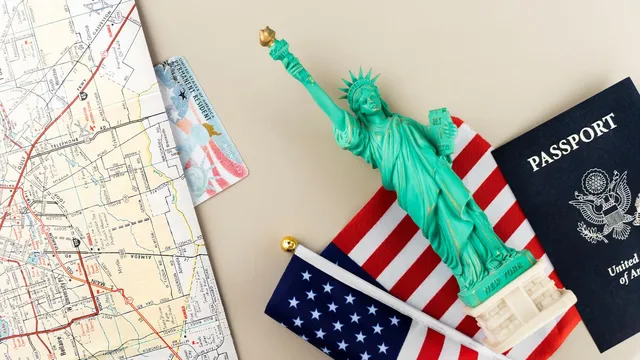- By Supratik Das
- Mon, 22 Sep 2025 07:54 AM (IST)
- Source:JND
Trump H-1B visa update: The latest move by the Trump administration to impose a steep USD 100,000 fee for filing H-1B visa applications has sent a state of panic among Indian professionals and students who have long looked at the United States as their top destination for higher education and employment. The abrupt change in rule has not only upset the world's technology space but also put the humanitarian disruption into families' lives at stake.
What Are the New H-1B Visa Rules?
On Friday, US Commerce Secretary Howard Lutnick, standing alongside President Donald Trump at the Oval Office, announced a new visa framework aimed at “protecting American jobs.”
• A USD 100,000 one-time fee has been introduced for all new H-1B visa petitions.
• The charge will not apply to renewals or to those already holding valid H-1B visas.
• The new rule takes effect in the upcoming visa lottery cycle.
• A new “Gold Card Residency Programme” worth $1 million was also unveiled for wealthy immigrants.
• US Citizenship and Immigration Services (USCIS) clarified that applications filed before September 21 will not be impacted.
Impact on Indian Students And Techies
India, which accounts for nearly three-quarters of H-1B visas annually, has been hit the hardest. For many young Indians, the fee hike represents a near collapse of their long-cherished plans.
• Over 70 per cent of all H-1B visas go to Indian nationals.
• The move could affect Indian tech professionals, remittances, and bilateral trade ties.
• Indian students currently form the largest foreign student group in the US, with 422,335 enrolled in 2024, an 11.8 per cent rise from the previous year.
• Several students say the new rule makes it financially unrealistic to seek sponsorship, especially from smaller firms.
• Families face uncertainty as students and professionals rethink plans.
• Indian IT majors like Tata Consultancy Services (TCS), which secured over 5,000 H-1B approvals in the first half of 2025 alone, fear disruption in business continuity.
• India’s IT association Nasscom warned that business continuity and project delivery in the US could be disrupted.
Voices From India
For many aspirants, the dream of studying or working in America now looks bleak. Sudhanva Kashyap, a 21-year-old aerospace engineering student from Bengaluru, told AFP that he had always dreamed of studying at a top-tier American university, with Stanford his ultimate goal. “Back when the fee was lower, it was still something you could pin hopes on, it would be easier to convert the student visa to an H-1B,” he said. “I am very disappointed… my main dream is derailed as things stand now.”
Similar disappointment was voiced by Shashwath VS, a 20-year-old chemical engineering student in Bengaluru, who also spoke to AFP. “The new fee is too high for companies to think about sponsoring a foreign candidate. I will now explore other countries… going to the US was a priority for me, but not anymore,” he said, adding that Germany, the Netherlands and the UK were now more realistic options.
For those who once lived the American dream, the new rules mark a reversal of hope. Sahil, a 37-year-old senior manager at an India-based consultancy firm, told ANI that he had returned from the United States last year after spending almost seven years on an H-1B visa. “I can tell every second or third person in the IT sector dreams of settling in the US or visiting to work,” he said. “We will see fewer Indians migrating to the US in the future. That possibly means those people will now start looking at other countries.”
ALSO READ: ‘5,189 H-1Bs, 16,000 Americans Fired’: Trump Admin Justifies $100,000 Fee To Curb Visa Misuse
The Indian Embassy in Washington DC has set up an emergency helpline (+1-202-550-9931) for nationals caught in visa-related confusion. The Ministry of External Affairs (MEA) has also cautioned that the move could cause humanitarian distress. “The full implications of the measure are being studied by all concerned, including industry. Skilled talent mobility has contributed enormously to innovation and economic growth in both countries. We hope these disruptions will be addressed suitably by US authorities,” the MEA said in a statement.
The H-1B visa programme has been under the scanner since Trump’s first term, with the administration repeatedly citing the need to protect American workers. But with the latest changes, the American Dream, once within reach for thousands of Indian engineers, programmers, and researchers, appears to be slipping further away.

